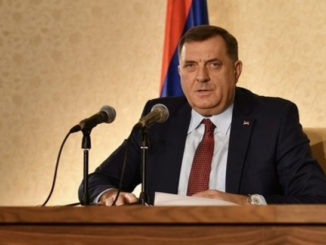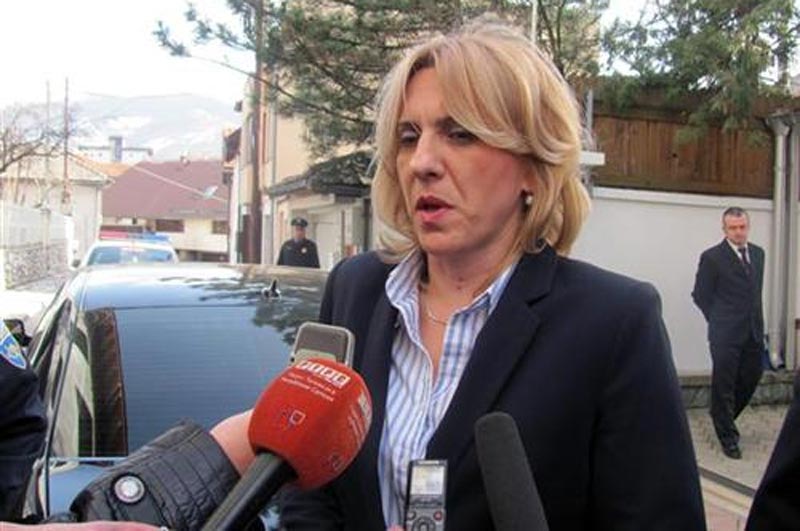
When the International Criminal Tribunal for the former Yugoslavia (ICTY) closes, the state courts in the region will have to continue the prosecution of war crimes by themselves, said Chief Prosecutor Serge Brammertz in an interview with the Anadolu Agency at the Hague Tribunal.
According to Brammertz, there is a political responsibility to ensure that the judiciary receives the support that it needs to do its work. Progress in resolving cases in other categories, which were transferred from the ICTY to BiH’s judiciary, is still very minimal, he added.
Take responsibility
“If there is almost no progress in the cases that I ask after every six months during my visits, then I wonder what happens to those cases in which no one asks? We have learned that external pressure is not necessarily the best way to achieve progress. I would wish that people on the state level would take responsibility for their parts, because no one from the outside can tell the judges and prosecutors in Bosnia and Herzegovina what to do,” said Brammertz.
It is necessary that the government takes responsibility at a national level, Brammertz continued. Judges and prosecutors and other responsible persons have to make sure that there will be a sufficient number of people working in certain cases. Brammertz has underlined that it is necessary to create a political climate that would allow the prosecution of all cases in Bosnia and Herzegovina.
“We notice that whenever we talk about the so-called cases on low levels, we see progress. When it comes to the intermediate level or perpetrators of political significance, we see strong political reactions everywhere. I think, the priority is that the politically responsible persons in BiH do their work with the help of the international community and me. I want to support the colleagues who are doing an excellent job, and to persuade other colleagues to do more,” said Brammertz.
While it is impossible to predict what the judgment in the case of Radovan Karadzic and Ratko Mladic will be, Brammertz said that his office has prepared the indictment, presentation and the introduction of evidence in cases planned in advance well.
“We believe that the evidence is sufficient to ensure a conviction. I strongly believe in the guilt and responsibility of the two. Nevertheless, the judges decide on the verdict,” Brammertz said.
The biggest problem in the case of Karadzic and Mladic is that they were arrested more than ten years from the commission of the crime, so the Prosecutor’s Office was forced to reduce the charges to ensure that these cases remain within the time limits.
“We are talking about what is left in the indictment, which is the three-year siege of Sarajevo, the genocide in Srebrenica and ethnic cleansing in a number of municipalities. It takes time to present the evidence of those crimes and it takes time for the defense to present their case. I want these cases progressing faster, but we had certain procedural problems and shorter delays. I am still satisfied with how the cases are progressing so far,” said Brammertz.
Next week: Decision on Mladic request
Ratko Mladic’s defense comment that they want to delete the indictments related to genocide. Brammertz expressed confidence that the chamber would confirm the indictment in this case and added that a decision on this request is expected next week.
“The victims’ organizations have very high expectations, and they have every right to do so. They were disappointed by the very slow process and I know that some of them wanted to be in The Hague. Nevertheless, 161 indictments is a lot compared to other international tribunals, but not much in comparison with the number of perpetrators. Time is running out and the victims’ organizations are losing patience. They have to continue their support of the judicial process. In order to progress, the victims have a key role as witnesses in our cases. I hope that the state is going to work on more cases of war crimes and that we will see progress in the coming months and years, with the help of an additional number of prosecutors funded by the European Union,” said Brammertz.
Syrian Crisis
The chief prosecutor of the Hague Tribunal also commented on the situation in Syria, where for three years there has been war. Brammertz said he believes that a crisis of this nature must first be resolved at a political level, before the responsibilities for crimes can be found.
“I believe, of course, that no conflict can be completed without a clear idea on how to solve the matter with the responsibilities. However, I think that a political solution must come first, because a judicial decision can never be imposed during the conflict. How would the evidence be collected? We know that was a big problem at the start of the Tribunal’s work. Investigators could not conduct investigations on the territory of Syria, because the war is not finished yet,” concluded Brammertz.(AA)



